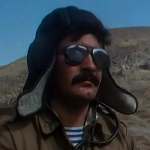Panzeh posted:Louis and Austria were in cahoots. Remember his wife was HRE Royalty now.
|
|
|
|
|

|
| # ? May 23, 2024 23:55 |
|
The Anglo-Austrian coalition of 1700 had basically shut down Louis XIV's grand design for France to be the European superpower.
|
|
|
|
Ainsley McTree posted:Also, if anybody's interested in testing the outer limits of This got lost in the discussion I think. 
|
|
|
|
Ainsley McTree posted:Also, if anybody's interested in testing the outer limits of 
|
|
|
|
Yeah I donít plan to do a post every day for four years or anything  . Iíll take a closer look at it when I go home for Xmas and share anything that looks interesting. . Iíll take a closer look at it when I go home for Xmas and share anything that looks interesting.
|
|
|
|
Above all, don't jeopardize the original if you can possibly avoid it.
|
|
|
|
PittTheElder posted:Above all, don't jeopardize the original if you can possibly avoid it.
|
|
|
|
My plan is to gingerly take phone pictures of each page and transcribe the photos; Iím generally paranoid about all things I touch breaking in my hands (including electronics, old photographs, babies) so I will be careful!
|
|
|
|
Ainsley McTree posted:Is Mike Duncan generally thread-approved? I enjoy his podcast and I bought his book but if he was horribly biased and discredited or something I'd never know unless a bunch of historians told me He's been treated pretty positively so far.
|
|
|
|
GreyjoyBastard posted:He's been treated pretty positively so far. He stays away from grand generalizations, acknowledges alternate interpretations, and in general seems up to date on more recent scholarship in the areas he does pop history on.
|
|
|
|
It's kinda weird how paper is so variable. My grandma still has her great-grandfather's (maybe just her grandfather's, I can't remember) discharge papers from the US civil war but my uncle's vietnam-era papers - I think they were discharge papers too but I was eight years old and am now a drunk - literally fell apart in my hands in 1995 or thereabouts.
|
|
|
|
Grand Prize Winner posted:It's kinda weird how paper is so variable. My grandma still has her great-grandfather's (maybe just her grandfather's, I can't remember) discharge papers from the US civil war but my uncle's vietnam-era papers - I think they were discharge papers too but I was eight years old and am now a drunk - literally fell apart in my hands in 1995 or thereabouts. Starting in the twentieth century paper was made with more economically efficient chemical processes that unfortunately also make it more acidic and prone to degrading with age than older paper.
|
|
|
|
P-Mack posted:Starting in the twentieth century paper was made with more economically efficient chemical processes that unfortunately also make it more acidic and prone to degrading with age than older paper. Comrade Gorbash fucked around with this message at 22:32 on Nov 29, 2017 |
|
|
|
If youíre in NYC, give Argosy Books a visit. They have books from the 17th and 18th century that you can thumb through, plus a lot of 19th and early 20th century books. The oldest English book I found was a 1790s adaptation of Joan of Arc. I also found a very interesting 1914 Spain travel guide. 
|
|
|
|
|
I said the same thing when I saw the prado
|
|
|
|
Comrade Gorbash posted:To expand a bit for those interested - there are specific types of acid free (and much more expensive) archival grade paper used for long term records. Not only are documents like those discharge papers likely to be printed on much cheaper grades, the kinds of printers used for those documents in the 70s could only handle certain kinds of paper that tend to age very poorly. I worked a lot with 1940s era carbon copies in various German archives and those things will fall apart if you look at them funny. I was constantly coughing because of all the paper dust I was inhaling. My wife would joke that I had "book lung" and she wasn't that far off. I
|
|
|
|
Cyrano4747 posted:I worked a lot with 1940s era carbon copies in various German archives and those things will fall apart if you look at them funny. I was constantly coughing because of all the paper dust I was inhaling. My wife would joke that I had "book lung" and she wasn't that far off. I Rip cyrano4747: died of book lung in the middle of a post
|
|
|
|
There's stuff in the Russian archives printed and handwritten on any kind of paper they happened to have, down to captured German blank forms. Naturally, some of it aged quite poorly.
|
|
|
|
Comrade Gorbash posted:To expand a bit for those interested - there are specific types of acid free (and much more expensive) archival grade paper used for long term records. Not only are documents like those discharge papers likely to be printed on much cheaper grades, the kinds of printers used for those documents in the 70s could only handle certain kinds of paper that tend to age very poorly. Yes, this is why if you go to the register office to sign a death certificate or something they have really fancy paper and they make you use a fountain pen.
|
|
|
Ainsley McTree posted:I said the same thing when I saw the prado That only Spanish wine is worth drinking? Also hereís that Joan of Arc:  Itís really weird holding something from the time of the American Revolution in your hands. Itís even weirder holding a velum book from the 1650s.
|
|
|
|
|
Secretly the average quality of paper has improved massively since the introduction of the desktop inkjet. Your typical lovely campus flyer is printed on paper that's orders of magnitudes better than pretty much any government record from the mid-20th century. Records printed now still won't keep, historically speaking, but they'll last longer than those carbon copies. And while digital archiving is its own entire can of worms, its not hopeless and should allow us to retain a lot of data for a good amount of time. But the reason the craze to digitize things is so important is that within the next century essentially the entire official documentation of the mid-20th is going to crumble into dust unless we capture it now.
|
|
|
|
Also why parliament still writes on vellum.
|
|
|
|
Comrade Gorbash posted:Secretly the average quality of paper has improved massively since the introduction of the desktop inkjet. Your typical lovely campus flyer is printed on paper that's orders of magnitudes better than pretty much any government record from the mid-20th century. A bunch of it is already gone; when my dad (the real my dad, not the poster) died, the military said they had no record of his service because the archives for that period had been destroyed in a fire. At least with digital archiving, the documents should be hopefully accessible over a timeframe of 50-100 years, which is what you'll definitely need them for.
|
|
|
|
sullat posted:A bunch of it is already gone; when my dad (the real my dad, not the poster) died, the military said they had no record of his service because the archives for that period had been destroyed in a fire. At least with digital archiving, the documents should be hopefully accessible over a timeframe of 50-100 years, which is what you'll definitely need them for. US? Probably this fire- https://en.m.wikipedia.org/wiki/National_Personnel_Records_Center_fire
|
|
|
|
P-Mack posted:US? Probably this fire- quote:Some U.S. Army Reserve personnel who performed their initial active duty for training in the late 1950s but who received final discharge as late as 1964. Yeah, that's the one.
|
|
|
|
Grand Prize Winner posted:It's kinda weird how paper is so variable. My grandma still has her great-grandfather's (maybe just her grandfather's, I can't remember) discharge papers from the US civil war but my uncle's vietnam-era papers - I think they were discharge papers too but I was eight years old and am now a drunk - literally fell apart in my hands in 1995 or thereabouts. avoid light and if you have 20th century material invest in basic (the chemical) blotter paper and folders to neutralize the acid in mid-20th century papers
|
|
|
|
Ainsley McTree posted:I said the same thing when I saw the prado
|
|
|
|
Cyrano4747 posted:I worked a lot with 1940s era carbon copies in various German archives and those things will fall apart if you look at them funny. I was constantly coughing because of all the paper dust I was inhaling. My wife would joke that I had "book lung" and she wasn't that far off. I
|
|
|
|
That is the other benefit of digital, that it can be decentralized. A lot of important records have been lost in various fires, and there's a lot of WW1 documentation that literally got blown up in WW2. But even the stuff that's survived those bottlenecks are just falling apart. Hence Cyrano4747 inhaling some fat-fingered Oberleutnant's typos.
|
|
|
|
HEY GUNS posted:i did the same thing but that was because part of the 17th century writing process involved shaking sand onto your freshly-written page. i dug it out of my hair with my nails. Where do they get the sand from? Locally or do they bring them with them?
|
|
|
|
I think you can reuse the sand if I remember seeing that technique used. You pour it down the page I think and it helps take the wet off? Might be thinking of something else though.
|
|
|
|
OwlFancier posted:I think you can reuse the sand if I remember seeing that technique used. You pour it down the page I think and it helps take the wet off?
|
|
|
|
chitoryu12 posted:I also found a very interesting 1914 Spain travel guide. I can think of only one John Hay so pretentious and well-travelled that he might have written that.
|
|
|
|
Grand Prize Winner posted:It's kinda weird how paper is so variable. My grandma still has her great-grandfather's (maybe just her grandfather's, I can't remember) discharge papers from the US civil war but my uncle's vietnam-era papers - I think they were discharge papers too but I was eight years old and am now a drunk - literally fell apart in my hands in 1995 or thereabouts. The Civil war paper was probably cotton fibre. The shift to wood pulp, which happened in the mid-19th century after the invention of the sulfite process, was a disaster for preservation. I've handled a lot of 17th century printed matter, and it's all much more robust than your average 1960s paperback. Old paper is fun because it has chain-lines, and watermarks, and is generally more information-rich than modern paper.
|
|
|
|
HEY GUNS posted:the prado owns
|
|
|
|
chitoryu12 posted:Itís even weirder holding a velum book from the 1650s. Wait, do you mean printed on velum? Those are super rare.
|
|
|
|
I have just found the online archive of almost all the master's thesis equivalent works of the Finnish Defense University. The cut-off seems to be 1991 and I'm sure some are missing based on secrecy stuff. This means that the works of most significant Finnish war-time military leaders are available  Here's a sample of the pre-war stuff:
But to me the most interesting thing is this series of theses, written immediately after WW2:
I'm planning on reading these during my month-long Christmas holiday. I'll  if there's anything especially interesting, in terms of either good insights or horribly wrong predictions. if there's anything especially interesting, in terms of either good insights or horribly wrong predictions.
Loezi fucked around with this message at 01:03 on Nov 30, 2017 |
|
|
|
Comrade Gorbash posted:That is the other benefit of digital, that it can be decentralized. A lot of important records have been lost in various fires, and there's a lot of WW1 documentation that literally got blown up in WW2. This is one of those things where in theory digital everything means that preservation is easier, but even in the immediate short term material is being deliberately destroyed rather than collected. According to a recent editorial in the Washington Post, a lot of Army records from 2003 to 2013 have simply been erased, with consequences from loss to historians, to loss of operational intelligence, to veterans being unable to prove that incidents where they were injured ever happened. There's a lot that we might never be able to know. One of which is how archival "death by powerpoint" stacks up to book lung and 17th century handwriting. quote:In Iraq, in part because of concerns over transporting classified material, soldiers heading home were forced to turn in computer hard drives to be wiped clean and ďreimaged.Ē My own computer held hundreds of reports written after daily patrols. I would note every soldier who went on the patrol, summarize our every action, list every person we talked to and often include photos. I recorded details and filed photos of the night in 2003 when an improvised explosive device wounded three of my soldiers so badly that they needed to be evacuated back to the United States. I documented the night in 2008 when a grenade was thrown at my soldiers, missed and killed a nearby Iraqi child.
|
|
|
|
Who posted the Warsaw memoir again? I've been sleeping better. I'm looking to fix that. Actually over all, are there any actually good memoirs by Germans of the Eastern Front that aren't better described as "historical" fiction?
|
|
|
|

|
| # ? May 23, 2024 23:55 |
|
Loezi posted:I have just found the online archive of almost all the master's thesis equivalent works of the Finnish Defense University. The cut-off seems to be 1991 and I'm sure some are missing based on secrecy stuff. This means that the works of most significant Finnish war-time military leaders are available I'm very interested in hearing about these two.
|
|
|









 Yes, it's like a lava lamp.
Yes, it's like a lava lamp.





















